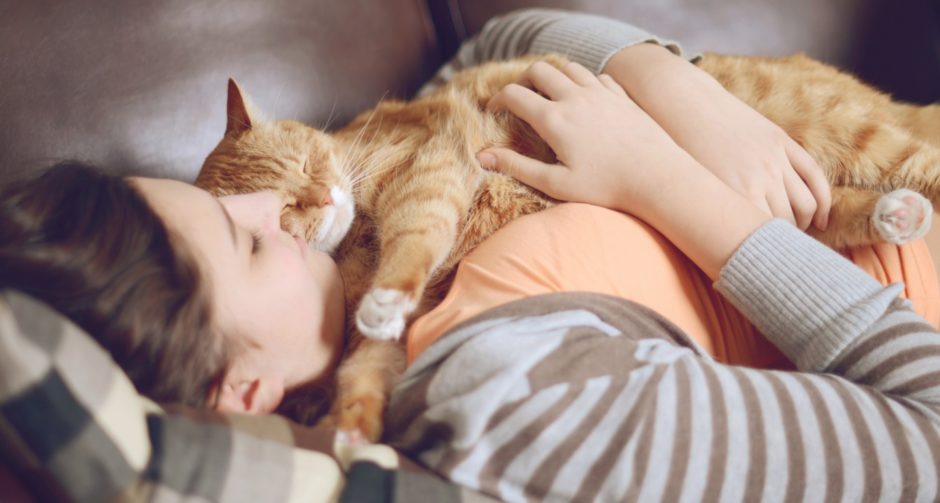
Cats, like humans, can experience stress and anxiety. There are various reasons why our feline friends may feel stressed, such as under-stimulation, changes in their environment, and being left alone for long periods of time. As responsible cat owners, it’s important for us to understand the signs of stress in our cats and take steps to help them relax and feel more at ease. In this comprehensive guide, we will explore effective strategies to help your cat cope with stress and create a peaceful and harmonious environment for your furry companion.
Understanding Cat Stress
Identifying the Causes
Cat stress can be triggered by a multitude of factors, including under-stimulation and boredom, not being able to live according to their natural instincts, being left alone for extended periods, overstimulation from loud noises or unwanted touching, and changes in their environment such as moving or the introduction of a new pet or family member.
Recognizing the Signs
It’s important to be able to recognize the signs of stress in your cat. While these signs can vary from cat to cat, common indicators include inappropriate toileting, fighting/attacking behavior, excessive scratching of walls or furniture, hiding or avoiding human interaction, changes in appetite, over-grooming leading to thinning fur or bald patches, excessive meowing, and changes in sleep patterns.
Creating a Stress-Free Environment

Providing Adequate Stimulation
Indoor cats, in particular, can experience stress due to under-stimulation. To alleviate this, it’s essential to provide them with opportunities for mental and physical exercise. Interactive toys, scratching posts, and puzzle feeders can help keep your cat engaged and entertained. Additionally, creating vertical spaces such as shelves or perches can give your cat a sense of security and encourage natural behavior like climbing and observing their surroundings.
Ensuring Proper Toileting Conditions
Cats are meticulous about their toileting habits. If they feel uncomfortable or threatened in their litter box, it can cause stress. Ensure you have enough litter boxes in quiet and private areas of your home. One litter box per cat, plus an extra one, is recommended. Clean the litter boxes daily and use a litter that your cat prefers. Some cats prefer covered litter boxes, while others prefer open ones. Experiment to find what works best for your feline companion.
Establishing a Consistent Routine
Cats thrive on routine and predictability. Establishing a consistent daily schedule for feeding, playtime, and interactions can help reduce stress. Cats feel secure when they know what to expect and can anticipate their daily activities. Stick to a regular feeding schedule and set aside dedicated playtime to engage with your cat using toys that simulate hunting and encourage exercise.
Promoting Relaxation and Comfort

Creating Safe Spaces
Cats need their own safe spaces where they can retreat and feel secure. Provide cozy hiding spots, such as cat beds, boxes, or even designated rooms, where your cat can relax undisturbed. Ensure these spaces are away from high traffic areas, loud noises, and other pets or children. Cats appreciate having a place to call their own, where they can retreat when they need some alone time.
Utilizing Pheromone Therapy
Pheromone therapy, such as the use of Feliway products, can help reduce stress in cats. Feliway is a synthetic version of the feline facial pheromone, which cats use to mark their territory as safe and comforting. Feliway diffusers and sprays can be used in areas where your cat spends most of its time to create a calming environment. This can be particularly helpful during times of change or when introducing a new pet or family member.
Providing Enrichment and Entertainment
Keeping your cat mentally stimulated is key to reducing stress. Offer a variety of toys that cater to your cat’s natural instincts, such as feather toys, interactive puzzles, and laser pointers. Rotate the toys regularly to maintain your cat’s interest. Additionally, consider providing window perches or cat trees near windows, allowing your cat to observe the outside world and bask in the sunlight. Outdoor enclosures or safe access to a secure outdoor area can also provide valuable enrichment for indoor cats.
Supporting Physical and Emotional Well-being

Ensuring Proper Nutrition
A balanced diet is essential for your cat’s overall well-being, including their emotional health. Feed your cat a high-quality diet that meets their nutritional needs. In some cases, special diets formulated to support urinary health and reduce stress, such as Hills Feline c/d Stress, may be recommended. Consult with your veterinarian to determine the best diet for your cat’s specific needs.
Regular Grooming
Grooming not only helps maintain your cat’s appearance but also promotes relaxation and reduces stress. Regular brushing helps prevent mats and hairballs, particularly in long-haired cats. It also provides an opportunity for bonding and positive physical contact with your cat. Keep an eye out for any changes in your cat’s grooming habits and consult your veterinarian if you notice excessive grooming or skin issues.
Veterinary Care and Medication
If your cat’s stress levels persist or become severe, it’s important to consult with a veterinarian. They can rule out any underlying medical conditions that may be contributing to your cat’s stress. In some cases, medication or supplements may be prescribed to help alleviate anxiety and promote a calmer state of mind. Always follow your veterinarian’s advice and dosage instructions when administering any medication to your cat.
Conclusion
Cats, like humans, can experience stress and anxiety. By understanding the causes and signs of stress in our feline friends, we can take proactive steps to create a stress-free environment and promote their overall well-being. From providing stimulation and safe spaces to utilizing pheromone therapy and maintaining regular veterinary care, there are numerous strategies we can employ to help our cats cope with stress. Remember, each cat is unique, so it may take some trial and error to find the techniques that work best for your furry companion. With patience, love, and a commitment to their emotional health, we can ensure our cats live happy and stress-free lives
